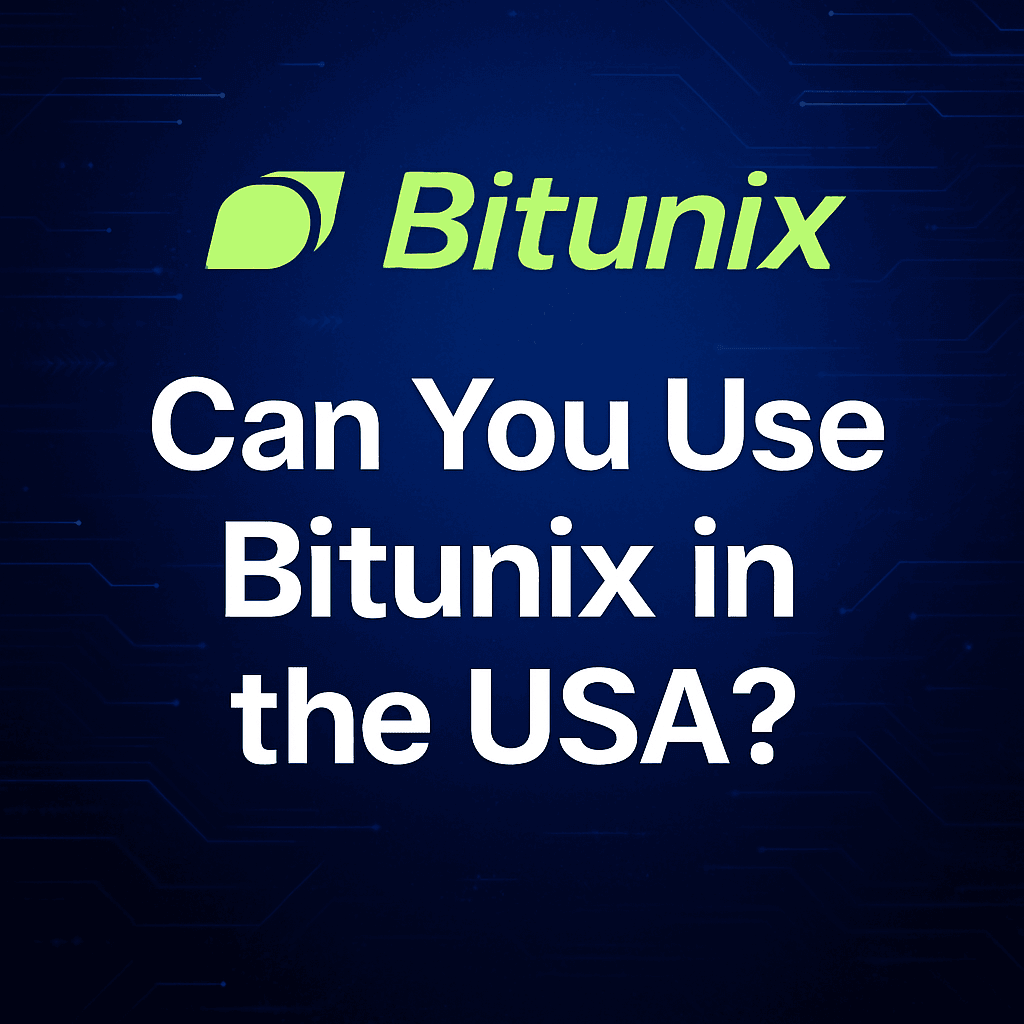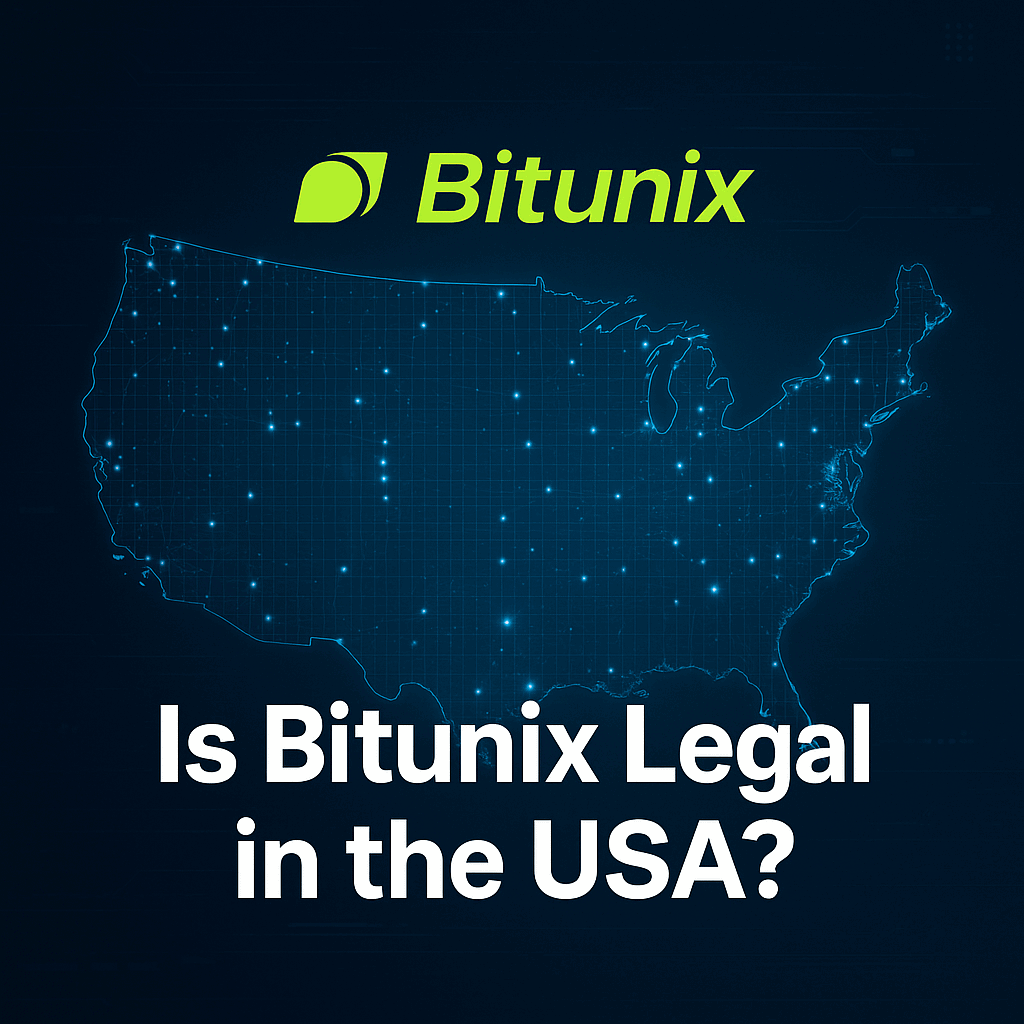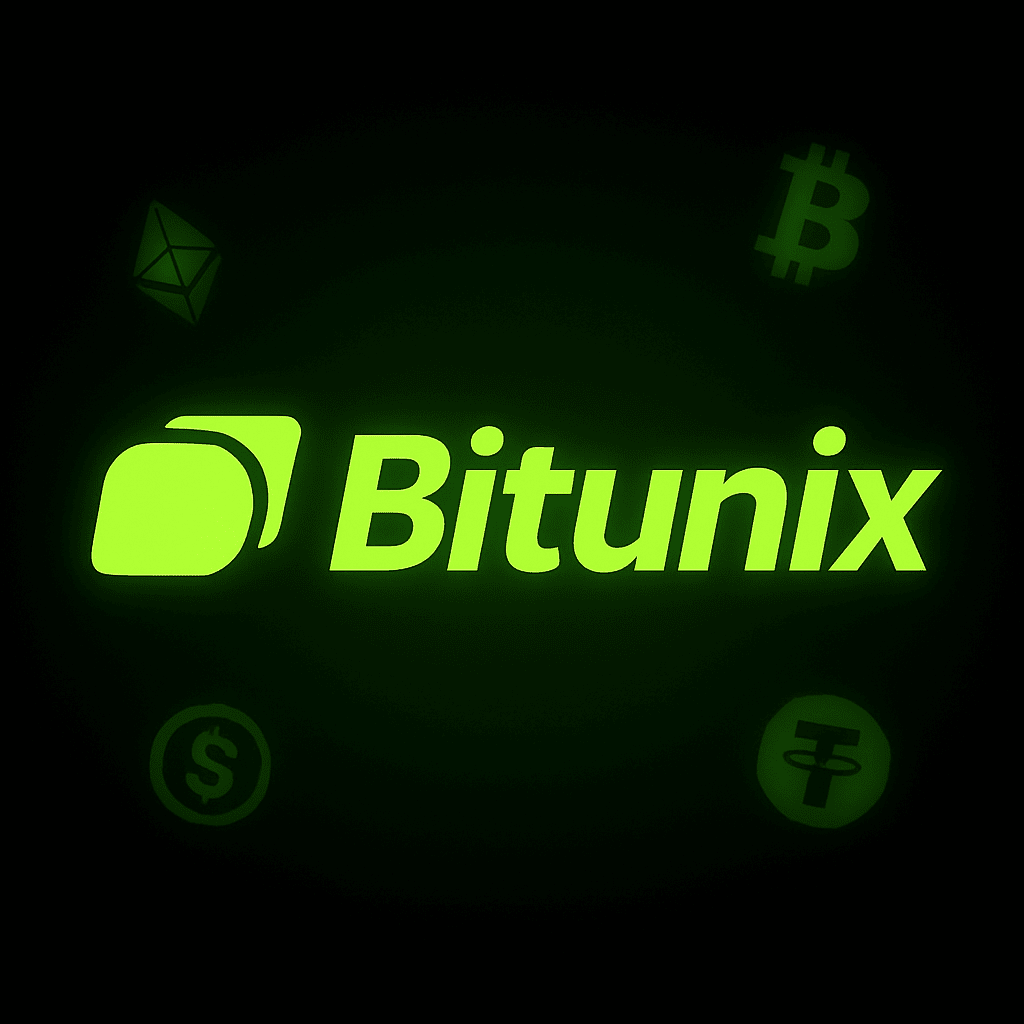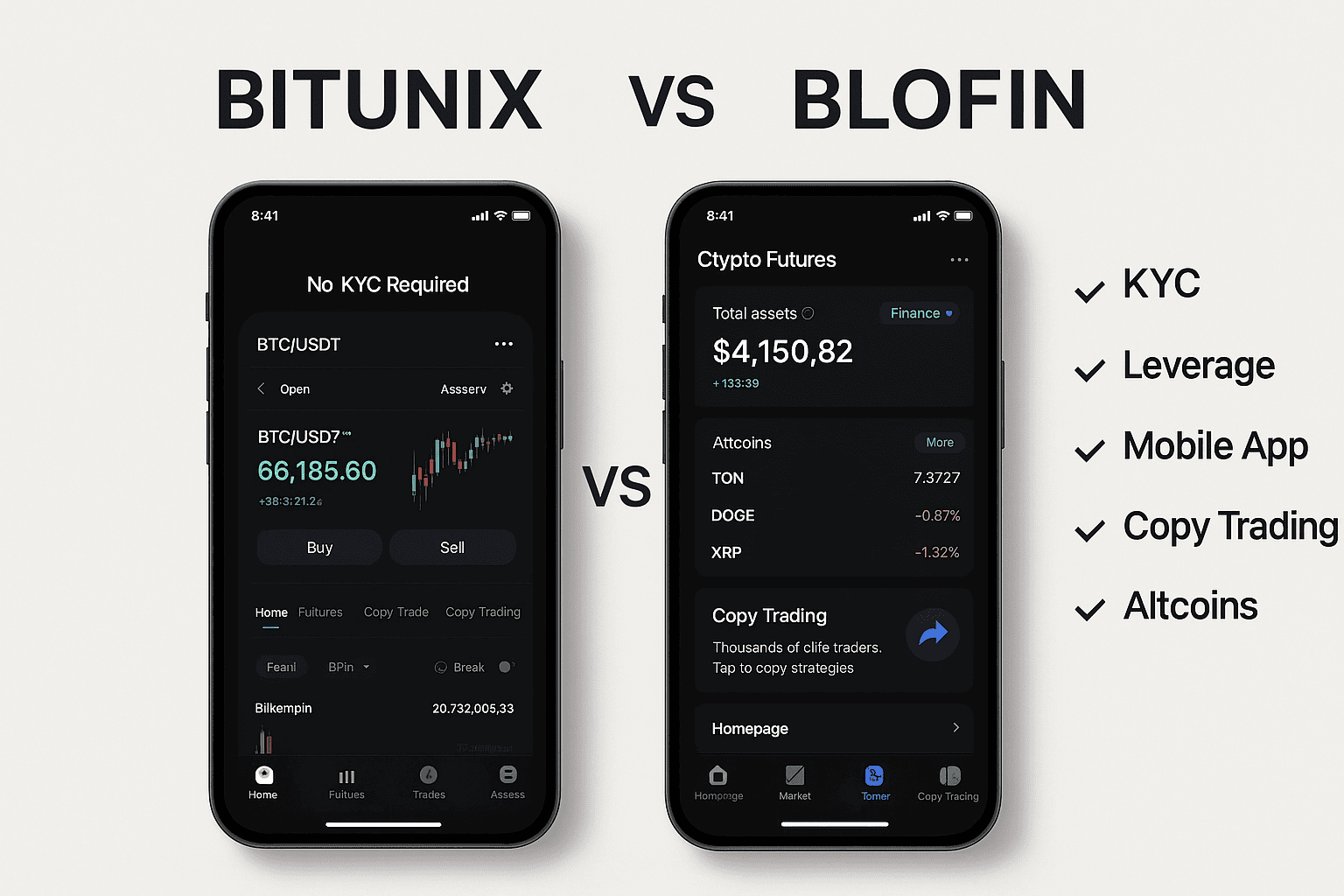
U.S. crypto traders are no strangers to frustration. Between clunky domestic platforms, surprise account freezes, and trading limits that make even high-volume users feel like beginners, it’s no wonder more Americans are turning to international platforms like Bitunix.
But one big question keeps popping up: Can you actually use Bitunix in the USA? Is it legal, accessible, and worth your time as an American crypto trader?
In this guide, we’ll answer those questions with authority—based on Bitunix’s licensing, platform terms, and firsthand trading experience.
Whether you’re a casual investor or an active scalper, understanding how Bitunix operates in the U.S. is crucial. This blog breaks down the rules, clears up common myths, and shares expert insights from a U.S.-based trader who actively uses Bitunix.
If you’re new to the platform, check out our full Bitunix review to get a complete overview of how it works.
Is Bitunix Legal in the USA?
Yes—Bitunix is legally accessible to U.S. users. Unlike many international platforms that block American IP addresses or force users into risky workarounds, Bitunix operates with a Money Services Business (MSB) license, issued by the U.S. Financial Crimes Enforcement Network (FinCEN).
This license allows Bitunix to legally offer certain crypto services in the U.S., including crypto-to-crypto trading, without violating federal regulations. In plain terms: Bitunix is not banned in the United States, and users don’t need a VPN to create an account, trade, or withdraw crypto.
This is a critical distinction. Many traders mistakenly assume that because an exchange is international, it’s somehow off-limits to Americans. That’s simply not true with Bitunix.
For those concerned about legal compliance, Bitunix’s MSB registration can be verified directly via the FinCEN MSB Registry.
Want to understand how Bitunix protects user assets? See our breakdown of their Proof of Reserves system.

What Can U.S. Traders Do on Bitunix?
Bitunix isn’t just accessible in the USA—it’s fully functional. American users can register with just an email address and begin trading within minutes. There’s no geo-block, no need for a VPN, and no forced KYC to get started.
Here’s what U.S.-based traders can do on Bitunix:
- Trade spot markets across major crypto pairs
- Access futures contracts, including altcoin derivatives
- Use the mobile app for live charts and quick execution
- Withdraw crypto (up to $10,000/day Email Only)
What you can’t do:
- Deposit or withdraw fiat currency directly (no U.S. bank connections)
- Access high-leverage positions (limits vary by region and compliance)
This makes Bitunix particularly attractive to altcoin scalpers, DeFi users, and futures traders who want a faster, cleaner experience than what’s typically offered by U.S.-based exchanges.
To find high-liquidity altcoin pairs that perform well on Bitunix, check out our guide on the Best Altcoin Pairs for Bitunix Traders.
You can also explore additional features on the official Bitunix support site.
If you’re based in the U.S. and want a faster, lower-fee platform, Bitunix is the one we personally recommend.

Bitunix KYC Rules for U.S. Users
One of Bitunix’s biggest draws for American traders is its flexible approach to KYC (Know Your Customer) requirements.
If you’re a U.S. resident, you can:
- Create an account without submitting any ID
- Trade crypto-to-crypto freely
- Withdraw up to $10,000 USD per day without verification
For many U.S. traders, this balance of privacy and access makes Bitunix a more attractive alternative to restrictive platforms like Coinbase or Kraken, which often enforce strict onboarding processes.
If you want higher withdrawal limits or additional compliance perks (like faster support and security overrides), you can opt into KYC verification. This involves submitting basic ID and address documentation—but it’s entirely optional for most users.
Bitunix’s transparent withdrawal policies and non-intrusive KYC options help preserve user freedom while remaining compliant under its MSB license.
Learn how to place your first trades with or Email Only in our Bitunix Trading Tutorial, or review the official withdrawal limits on the Bitunix Help Center.
Expert Opinion: Why I Use Bitunix as a U.S. Trader
By Lucas Tran — Lead Analyst, CryptoPulseHQ
As a trader based in the United States, I’ve tried nearly every major exchange: Coinbase, Kraken, Binance US, and even a few offshore platforms using complicated workarounds. But for the past year, Bitunix has been my primary exchange—and not just because it’s accessible without a VPN.
What sets Bitunix apart for me is the combination of speed, simplicity, and cost transparency. I don’t have to guess what I’m being charged on each trade. The interface is clean, the order execution is fast, and the fee structure is clearly laid out.
For altcoin futures and scalping strategies, Bitunix consistently gives me tighter spreads and better execution than most U.S.-based exchanges. And while others force me through unnecessary identity checks just to move small funds, Bitunix lets me operate with freedom—while still offering KYC when I choose to scale.
If you want to understand exactly how their fee system works and why it matters for active traders, I highly recommend reviewing the full Bitunix Fees Breakdown.
Expert Insight: What ‘Legal Access’ Really Means in Crypto
There’s a dangerous myth in crypto: if a platform isn’t based in the U.S., then using it must be risky or illegal. This simply isn’t true—and it’s time to clear that up.
Bitunix is not some offshore, gray-market exchange operating in the shadows. It holds a Money Services Business (MSB) license under FinCEN, the same regulatory body that oversees major U.S. crypto platforms. This license legally allows Bitunix to serve American users for crypto-to-crypto transactions.
What confuses most traders is the difference between compliance and geo-marketing restrictions. Some platforms block U.S. access because of aggressive SEC targeting or unclear altcoin classifications—not because using them is illegal.
Bitunix makes no such restrictions. As long as you follow the withdrawal policies and limits, you’re not violating any U.S. laws simply by trading there.
As a U.S.-based trader, I’ve tested platforms that required VPNs, shady login workarounds, or crypto-to-stablecoin hoops. Bitunix is refreshingly straightforward—and that matters.
For a direct comparison of Bitunix to another rising platform, see our Weex vs Bitunix breakdown.
And for real user experiences, check the Reddit thread on Bitunix’s MSB status.

Common Misconceptions About Bitunix in the USA
Before signing up for Bitunix, many U.S. traders hesitate because of rumors and outdated assumptions. Let’s clear up the most common myths.
Myth #1: “Bitunix is banned in the USA.”
False. Bitunix holds a Money Services Business (MSB) license through FinCEN, allowing it to legally offer crypto trading services to American users. There’s no ban—just confusion.
Myth #2: “You need a VPN to access Bitunix.”
Incorrect. Unlike geo-restricted platforms, Bitunix is fully accessible from U.S. IP addresses. No VPN, no location spoofing, no tricks.
Myth #3: “It’s not safe for U.S. citizens.”
Bitunix uses industry-standard security measures, proof-of-reserves transparency, and is MSB-registered. It’s as legitimate as many U.S.-based exchanges—just with fewer limitations.
These misconceptions keep a lot of American traders from using a platform that could actually save them fees and improve execution.
To get the full breakdown of how Bitunix protects users, read our Is Bitunix Legit? article.
And if privacy is your priority, some U.S. users prefer adding an extra layer of security with a VPN. Our top pick is NordVPN, which works well with Bitunix without triggering restrictions.
Final Verdict: Should You Use Bitunix in the USA?
If you’re a U.S. trader tired of limitations, delays, or bloated fees from domestic exchanges, Bitunix offers a clear and legal alternative. It’s fast, accessible, and fully MSB-compliant.
You don’t need a VPN to sign up. You don’t need to submit ID just to trade. You don’t even need to wonder about hidden fees—the structure is public and predictable. From spot and futures markets to altcoin access, Bitunix delivers on what most U.S. platforms lack: freedom, speed, and simplicity.
Yes, Bitunix works in the USA.
Yes, it’s legal under FinCEN.
And yes, it’s a strong option for American crypto traders in 2025.
If you’re ready to take control of your trades and stop overpaying on outdated platforms, open your free Bitunix account here.
Want the full breakdown of trading fees before you start? Read our Bitunix Fees Explained to understand exactly how to save more with every trade.

Frequently Asked Questions: Bitunix in the USA
Is Bitunix legal for U.S. residents?
Yes. Bitunix is registered as a Money Services Business (MSB) with FinCEN, which allows it to operate legally in the United States for crypto-to-crypto trading. U.S. traders are not restricted from accessing or using the platform.
Can I use Bitunix in the U.S. without a VPN?
Absolutely. Bitunix does not block U.S. IP addresses. You can access the platform freely without needing to spoof your location or use a VPN.
Do I need KYC to use Bitunix?
No. You can register, trade, and withdraw up to $10,000 per day without completing KYC verification. If you want higher limits or enhanced support features, optional KYC is available.
Does Bitunix offer fiat onramps for U.S. users?
Not at this time. Bitunix does not support direct bank transfers or fiat deposits. You’ll need to fund your account with crypto.
What crypto products can U.S. traders access on Bitunix?
U.S. users can trade spot and futures markets, including altcoins. Leverage may be capped depending on your region, but all major trading features are available without restriction.
Is Bitunix better than U.S. exchanges?
That depends on your needs. If you want lower fees, faster execution, and fewer restrictions—especially for futures or altcoin trading—Bitunix is a strong alternative to platforms like Coinbase or Kraken.
CryptoPulseHQ is a crypto-focused publication built by professional traders, for traders. With over 7 years of experience in the crypto space, our mission is to simplify exchanges, tools, and strategy — so you can trade smarter and stay one step ahead.
We publish daily guides, comparison blogs, and step-by-step tutorials to help you navigate the fast-moving world of crypto with clarity and confidence.
This guide was written by a cryptocurrency researcher with extensive experience in altcoin platforms, decentralized trading tools, and global exchange analysis. Our goal is to help users trade securely and responsibly through transparent education. — **Disclaimer:** This content is for informational purposes only and does not constitute financial, investment, or legal advice. Always review the laws in your country before using any cryptocurrency platform. Trading involves risk, and past performance is not a guarantee of future results. Some of the links on this site are affiliate links, which means we may earn a commission if you click through and make a purchase — at no additional cost to you.
